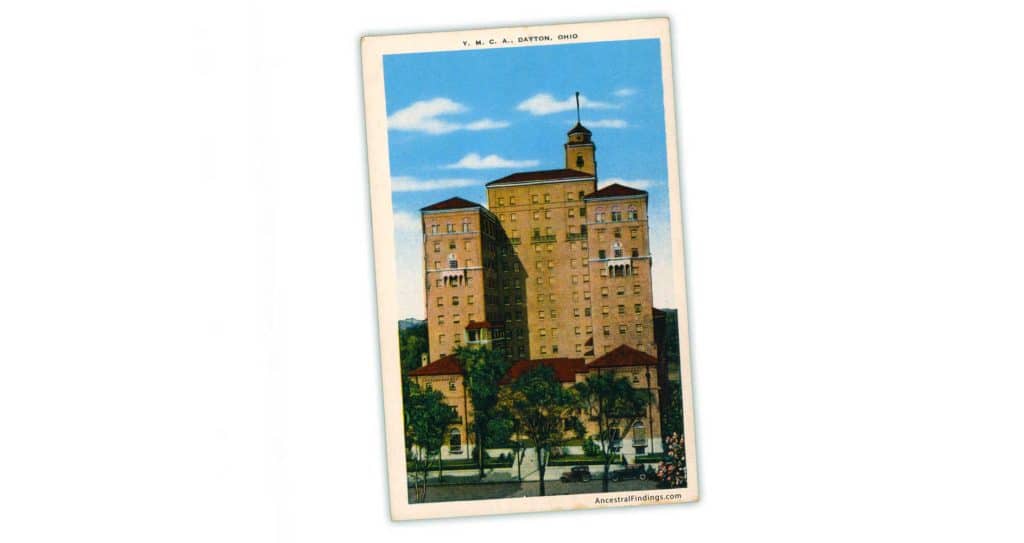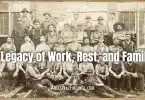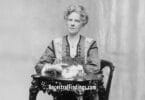The Young Men’s Christian Association, also known as the YMCA, was founded by a man named George Williams and eleven of his friends. George was a draper in London in the mid-1800s, during the Industrial Revolution. A concern of his at the time was the absence of activities for young men in the city that were healthy. Most of the options for entertainment for them included bars and brothels. George knew there had to be a better way, and he became committed to finding it.
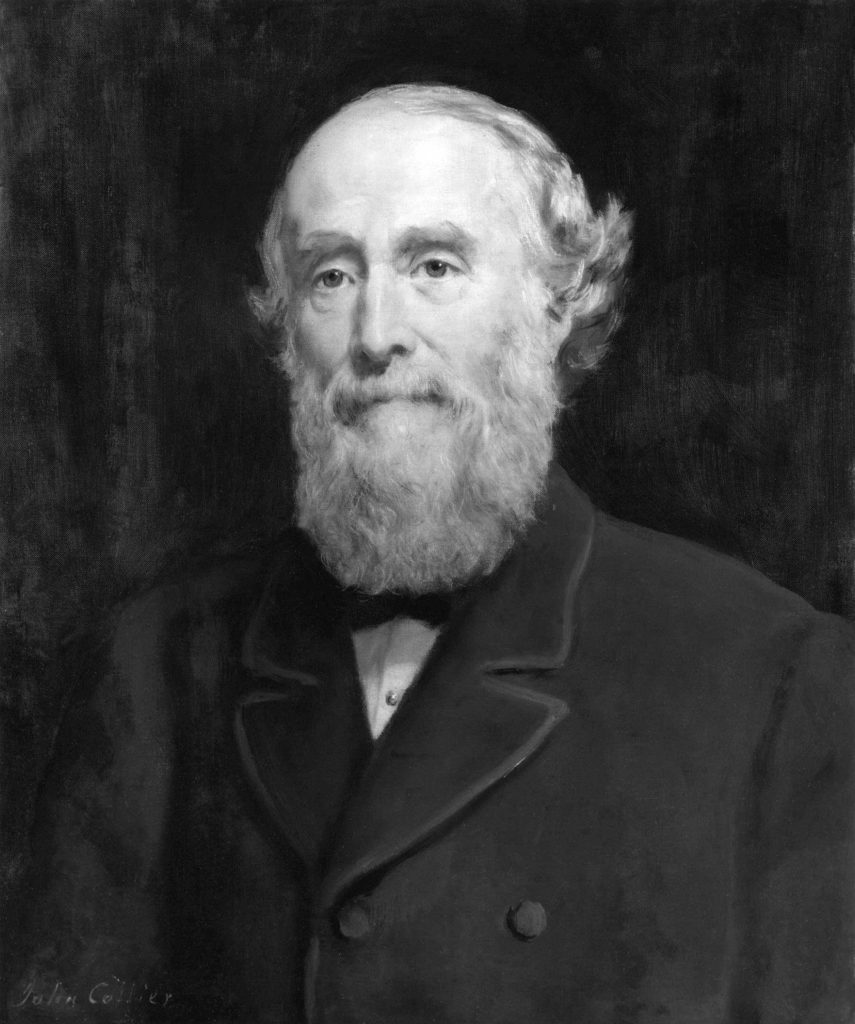
George was having Bible study and prayer meetings for himself and his co-workers when the idea for the YMCA occurred to him. He brought it up at one of these meetings in June of 1844. That meeting led to the founding of the YMCA, as several of his co-workers got on board with the idea and helped him bring his vision to life. The purpose of the YMCA, according to George’s original idea for it, was “the improving of the spiritual condition of young men engaged in the drapery, embroidery, and other trades.”
The next year, the YMCA, still in its infancy and planning phase, put on a popular lecture series that was moved to Exeter Hall in London in 1848, and the lectures started to be published in 1849 and continued to be until 1865. In 1851, Lord Anthony Ashley-Cooper, the 7th Earl of Shaftesbury, became the first president of the YMCA and held this position until he crossed over to the other side in 1885.

The Foundations of the YMCA
The YMCA was born because of the movement of young people from the farms to the cities with the Industrial Revolution, and it combined street preaching and handing out religious pamphlets with a social ministry. As the YMCA established itself as a physical location at a variety of buildings in London and other large British cities, philanthropists took notice, as the YMCA locations were viewed as places where wholesome recreation could be obtained… types of recreation that would protect young men from the temptations of alcohol, gambling, and prostitution that the cities had to offer, and would make them into good citizens.
The YMCA appeared in the Great Exhibition of 1851, which was the first of several World’s Fairs to be had on the planet. It was in Hyde Park in London, and it gained international attention for the YMCA. The next year, branches of the YMCA opened in Australia, Belgium, Canada, France, Germany, the Netherlands, Switzerland, Hong Kong, and the United States.

Becoming an International Movement
Once the YMCA was established beyond the UK’s borders, the idea of making it into a global movement with an international headquarters was made by Henry Dunant, who was the secretary of the YMCA in Geneva, Switzerland. Henry went on to found the International Committee of the Red Cross and also won the first Nobel Peace Prize. Henry convinced the YMCA in Paris, France to put together the first YMCA World Conference. This conference took place in August of 1855 and brought ninety-nine delegates from nine countries together at the Exposition Universelle. At this conference, the delegates discussed joining together as a federation in order to enhance cooperation between different branches of the YMCA around the globe. This was the birth of the World Alliance of YMCAs. The motto of the World Alliance was taken right from the Bible, in keeping with the group’s Christian origins: “That they may all be one.” (John 17:21).
The first World Conference of YMCAs placed importance on the need to respect the local autonomy of each individual YMCA group. It also clearly stated the purpose of the YMCA going forward, which was to unite all young Christian males for the extension and expansion of the Kingdom of God. The preamble to this first World Conference of YMCAs states it thusly:
“The delegates of various Young Men’s Christian Associations of Europe and America, assembled in Conference at Paris, the 22 August 1855 feeling that they are one in principle and in operation, recommend to their respective Societies to recognize with them the unity existing among their Associations, and while preserving a complete independence as to their particular organization and modes of action, to form a Confederation of secession on the following fundamental principle, such principle to be regarded as the basis of admission of other Societies in future.”
The fourth World Conference of YMCAs was held in Germany, and it re-iterated the group’s support for developing the whole person in mind, body, and spirit. This conference also introduced the concept of physical work (developing the body) through playing sports, which was a new concept at the time, and was part of an overall movement in Christian churches all over the globe at the time called “muscular Christianity.”

The YMCA’s Peak Popularity in Christianity and Associated Activities
The YMCA was quite influential in the Christian church of western nations from the 1870s to the 1930s. During this time, it was a successful promoter of evangelical Christianity in both weekday and Sunday services, while also promoting good sportsmanship in a variety of different athletic contests in local gymnasiums and swimming pools. In fact, modern basketball and volleyball were invented in such gyms being used for YMCA sporting activities.
After the 1930s, and to the end of the twentieth century, the YMCA was an interdenominational group that was more concerned with instilling good morals and good citizenship in young men than in any promotion of any particular interpretation of Christianity. In times of war in the United States, beginning with the Civil War, the YMCA also provided nursing, shelter, and other support to those who needed it, not just young men. In fact, the young men who were drawn to the YMCA were usually the ones offering such assistance along with the administrators of the individual YMCA societies.
World YMCA offices were established for the first time in 1878 in Geneva, Switzerland. In 1900, the North American YMCAs group collaborated with the World YMCA and set up centers to work with emigrants to America in European ports, before the emigrants set sail for the new world. In 1880, the Norway YMCA distinguished itself as the first one in the world to adopt a strict policy of equal male and female representation on both committees and national boards.

The YMCA and WWI
Just a few days after the declaration of WWI, the YMCA had already set up and established around two hundred fifty recreation centers, known as huts, in the UK. It would go on to build temporary huts all across Europe. These huts were there to support both soldiers and civilians and were manned by thousands of volunteers. There were some notable supporters of the YMCA and its support efforts during WWI, too. These include Clementine Churchill, Oswald Chambers, and Robert and Olave Baden-Powell. The YMCA Women’s Auxiliary was formed during the first month of WWI. Princess Helena Victoria of Schleswig-Holstein became a notable member and chairwoman of the organizing committee of this group.
The YMCA truly stepped up to be of assistance in a big way in WWI. It raised and spent more than one hundred fifty-five million dollars on welfare programs for American soldiers. It deployed more than twenty-five thousand of its staff to military units and bases wherever the war was being fought, from Siberia to Egypt to France. These YMCA staff did wonderful work in taking over the morale and comfort operations of military units all across the globe. In fact, a YMCA WWI worker named Frances Gulick was stationed in France and did such good work there that he was awarded a US Army citation for valor and courage on the battlefield. Irving Berlin, the noted songwriter, even wrote a song about the YMCA’s role in WWI called “I Can Always Find a Little Sunshine in the YMCA.”

The YMCA and WWII
The YMCA went out of its way to be helpful during WWII, too. In that conflict, it was involved in supporting millions of POWs, and also in supporting Japanese Americans in internment camps in the United States. Their assistance included obtaining permission for young men to leave the camps to attend Springfield College and providing activities for the youth in the camps. The YMCA was also one of seven groups that together founded the USO.
The YMCA assisted in Europe during WWII, as well. Its primary work was in assisting the many refugees this war produced, particularly displaced Jewish people. Occasionally, the YMCA helped assist in escape operations. Its primary role in Europe during WWII, though, was in making sure relief packages sent from abroad or from local groups or governments were handed out to the correct people, usually refugees.
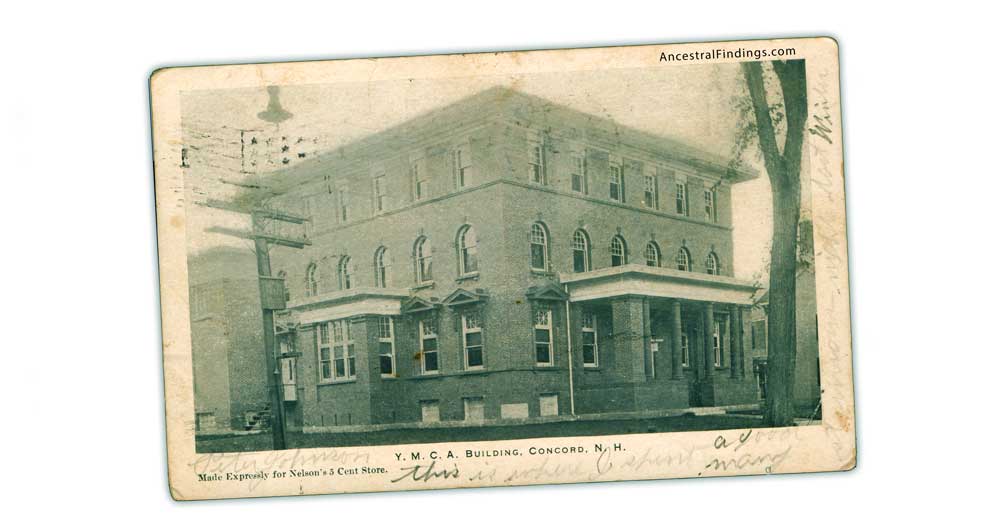
The YMCA Moves Beyond the War
The YMCA Motion Picture Bureau, which was later renamed Association Films, was one of the largest non-theatrical film distribution companies in the UK in the mid-1940s. In 1947, the World YMCA gained the status of a special consult with the United Nations Economic and Social Council. The first black World YMCA president, Charles Dunbar Sherman from Liberia, was elected in 1955. Being thirty-seven years old at the time, he was also the youngest World YMCA president to be elected at that point in time. The YMCA of the USA created the first nationally recognized scuba diving course in 1959 and certified skin and scuba divers in the United States. In 1974, the YMCA of the USA had also set up a cave diving curriculum.
The Sixth World Council of the YMCA was in 1973 in Kampala, Uganda. This was historically significant in that it was the first time the YMCA World Council was hosted in Africa. This council reaffirmed the founding principles of the YMCA, and also set up what was called the Declaration of Principles, also known as the Kampala Principles. This declaration includes a dedication of the YMCA to the principles of justice, creativity, and honesty. It also stated what was obvious at that point, which was that a global viewpoint for the World YMCA was necessary for the new, global society. It also recognized that in this new global society, the YMCA as both a world group and as individual national groups would need to take political stands on things, particularly in areas of international crises and challenges.
The YMCA as a Political Group
This commitment to taking a political stand was put into practice when, in 1985, the World Council of YMCAs passed a resolution against apartheid in South Africa. Anti-apartheid campaigns by the YMCA were put together by Lee Soo-Min of Korea, who was the first Asian secretary general of the World YMCA.
The Fourteenth World Council of YMCAs in 1998 adopted what they called Challenge Twenty-One, which was created to place more of the YMCA’s focus on global challenges like globalization, racism, gender equality, war and peace, fair distribution, and HIV/AIDS.
The Modern-Day YMCA
Going into the twenty-first century, the Fourteenth World Council of YMCAs also called on each member of YMCA to focus on certain challenges that are to be prioritized according to each individual group. It also commands each member YMCA to operate by a set of principles, which are a slight evolution of the earlier Kampala Principles. These principles are:
- Sharing the good news of Jesus Christ and striving for spiritual, intellectual and physical well-being of individuals and wholeness of communities.
- Empowering all to take increased responsibilities and assume leadership at all levels and working towards an equitable society.
- Advocating for and promoting the rights of and upholding the rights of children.
- Fostering dialogue and partnership between people of different faiths and ideologies and recognizing the cultural identities of people and promoting cultural renewal.
- Committing to work in solidarity with the poor, dispossessed, uprooted people and oppressed racial, religious and ethnic minorities.
- Seeking to be mediators and reconciles in situations of conflict and working for meaningful participation and advancement of people for their own self-determination.
- Defending God’s creation against all that would destroy it and preserving and protecting the earth’s resources for coming generations. To face these challenges, YMCA will develop patterns of co-operation at all levels that enable self-sustenance and self-determination.
The World Council of YMCAs that took place in 2002 in Oaxtepec, Morelos, Mexico, asked the YMCA groups in the world to assist in finding a peaceful resolution to the crisis in the Middle East.
In July of 2010, the YMCA of the USA rebranded itself to simply be called by its popular nickname, “The Y.” Today, all of the YMCA groups around the globe are open to everyone, regardless of age, ability, gender, sexual orientation, religion, race, culture, or socioeconomic background.

